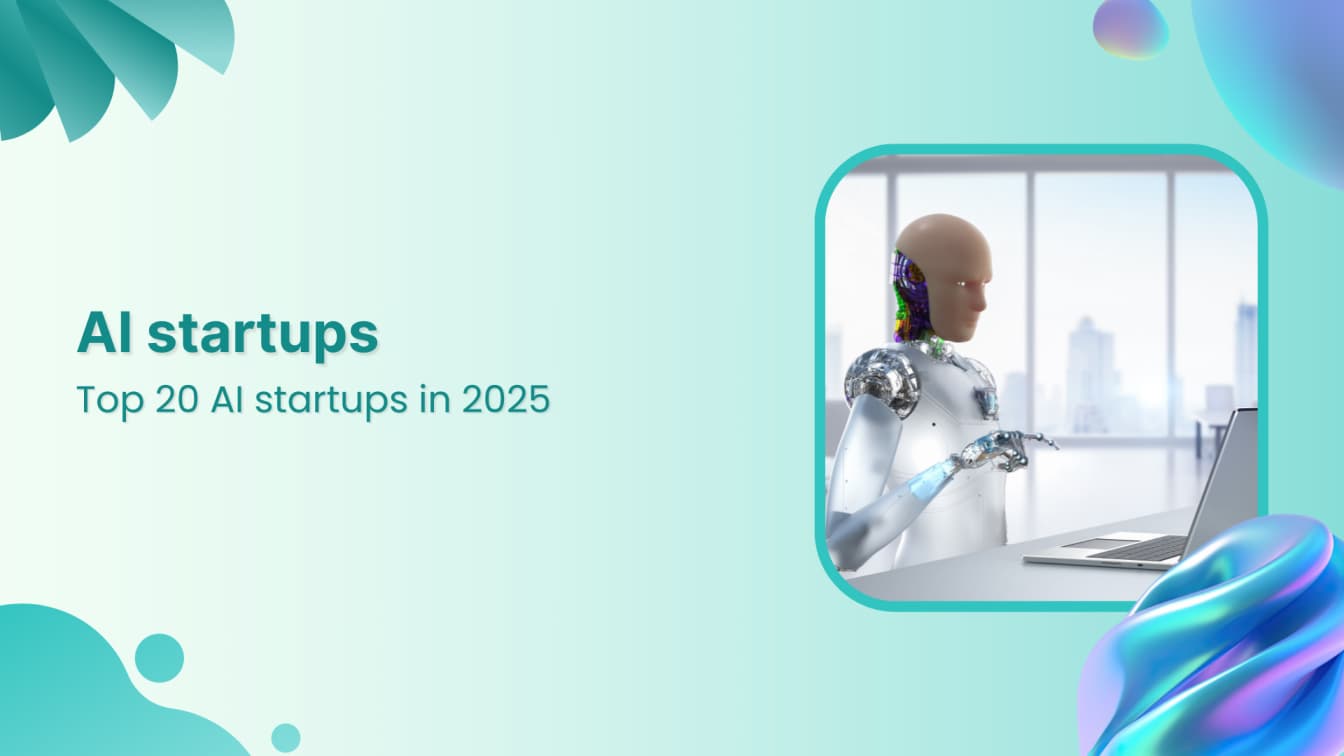The global AI market is expected to grow by 38% and have a massive worth of $747 billion in 2025. So, are you prepared to see the next era of innovation powered by AI?
As 2025 approaches, artificial intelligence’s promise to transform and amaze us keeps growing. New AI startups are ready to transform our future, from life-saving medical discoveries and business development to state-of-the-art developments in sustainable energy.
These generative AI startups are bringing revolutionary change by utilizing artificial intelligence to elevate sectors of the economy and revolutionize society.
In this blog, we’ll present the top 20 AI startups that will undoubtedly have an impact by 2025, paving the way for a society in which the extraordinary becomes the new norm.
Simplified social media marketing for individuals & agencies.
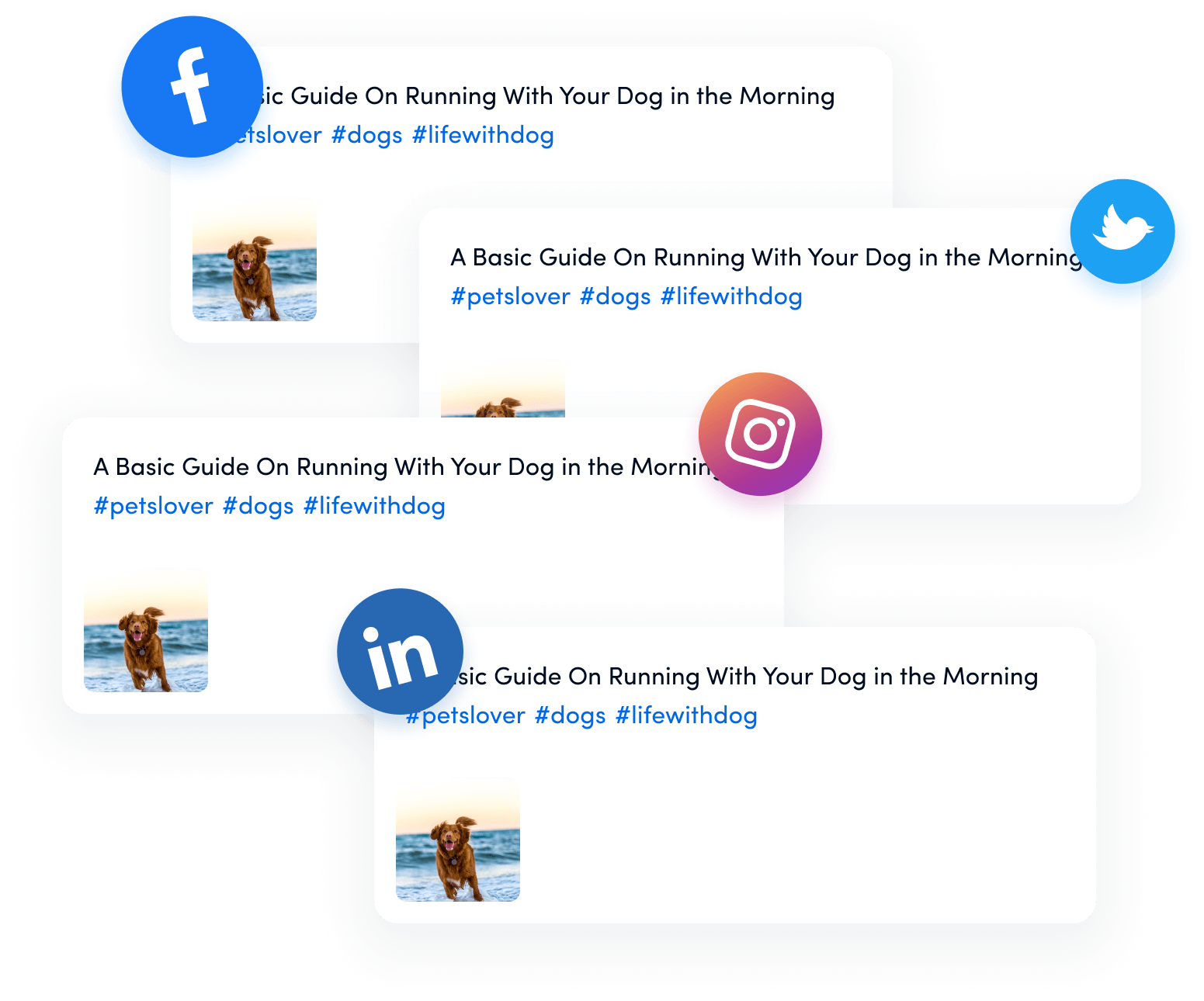
What is Artificial Intelligence and its importance?
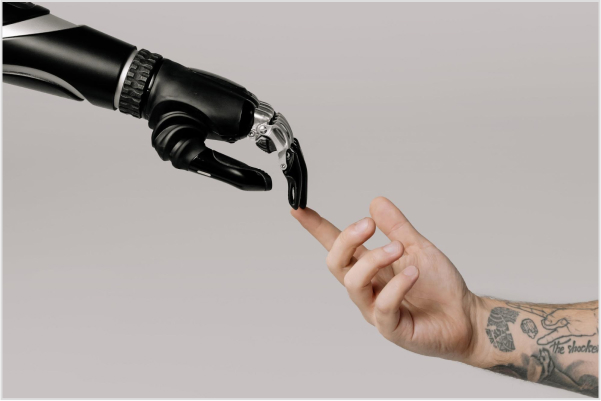
Artificial intelligence (AI) is a novel discipline in computer science that enables software and machines to perform operations that typically require human intelligence.
These tasks cover many abilities, including solving problems and making decisions, comprehending natural language, identifying patterns, and even perceiving and adjusting to their surroundings.
It is impossible to overestimate the significance of AI as the global AI market is constantly growing.
Now, what are the 4 types of AI? Let’s discuss.
- Reactive machines: These AI systems perform specific tasks without learning or adapting. They follow predefined rules and are not capable of learning from new data.
- Limited memory: These AI systems can learn from historical data but have limited memory and can’t make inferences beyond that data.
- Theory of mind (Artificial general intelligence): This is a hypothetical form of AI with human-like reasoning and cognitive abilities, including understanding emotions and social interactions.
- Self-aware AI: Currently more of a concept than a reality, self-aware AI would have a sense of self and consciousness.
AI has now wholly changed human lives. The following are some reasons for its importance and hype:
Automation and efficiency
Artificial intelligence can automate labor-intensive and repetitive processes, allowing human workers to concentrate on strategic and creative work.
AI is ranked as a top priority in business planning by 83% of firms because it boosts productivity and economic growth.
Data analysis
AI can handle enormous amounts of data at impossible speeds for humans. This capability enables businesses to glean insightful information and make data-driven healthcare, marketing, and finance choices. Nine out of ten companies promote AI for a competitive edge.
Social Media Analytics Fine-tune your social media strategy for success with in-depth analytics and white-labeled reports.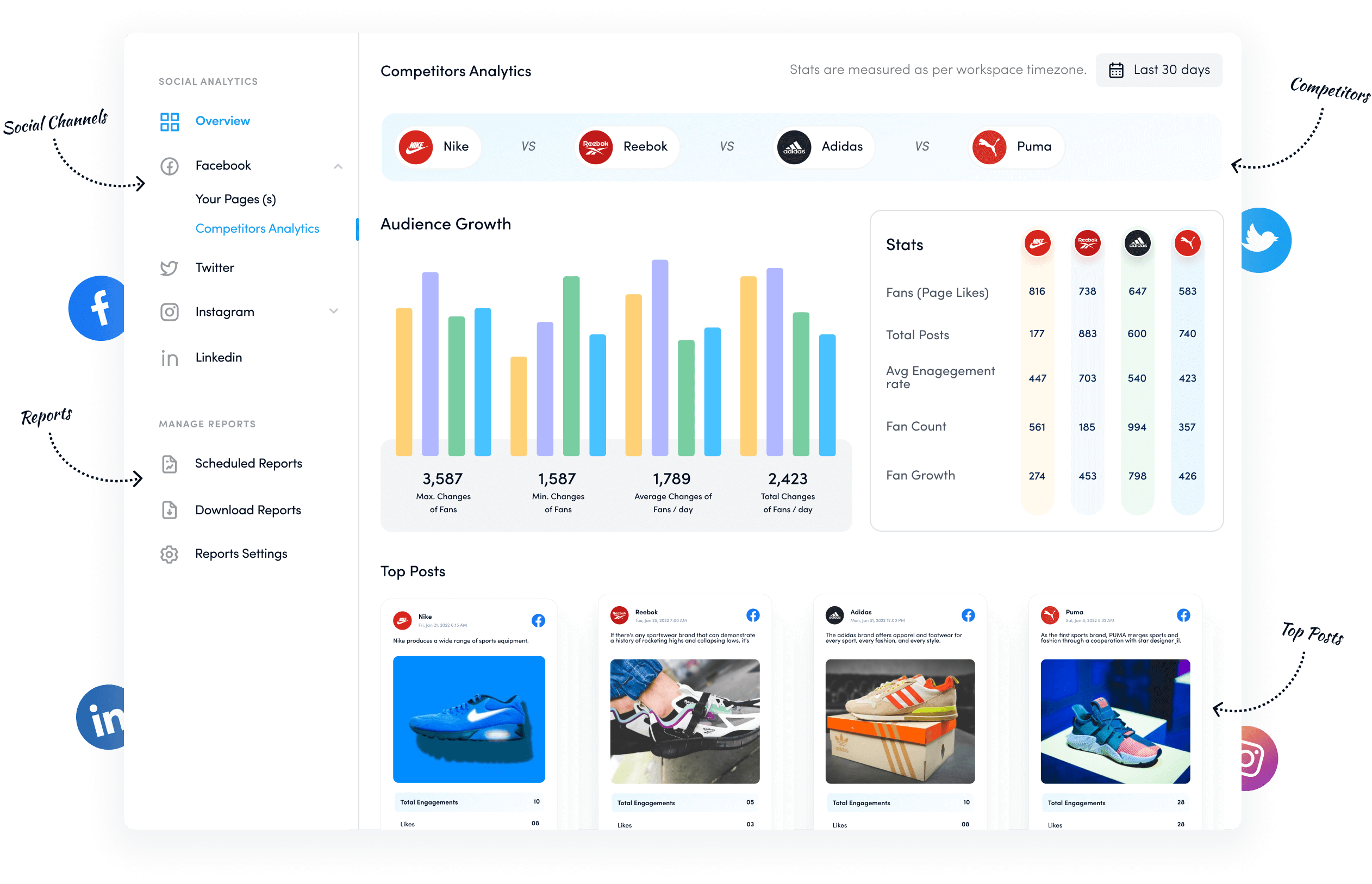
Personalization
Do you know that at Netflix, machine learning saves $1 billion?
AI powers the tailored suggestions found on websites such as Netflix and Amazon. Customizing content and user experiences to users’ preferences leads to customer satisfaction.
Related Read: Future of Customer Experience: 14 Ways AI is Making a Difference
Advances in healthcare
AI is used by 68% of healthcare firms. It helps in disease detection and therapy. For example, IBM’s Watson for Oncology examines a patient’s medical history and suggests tailored cancer care regimens. This degree of AI-powered healthcare has the potential to save lives and lower costs.
Related Read: Social Media Marketing Strategy for Doctors & Health Professionals
Autonomous vehicles
Businesses like Waymo and Tesla are creating self-driving cars that use artificial intelligence (AI) to determine safe routes. This could change transportation systems in addition to lowering road accidents.
Impact on the environment
AI is assisting in addressing critical environmental issues. For example, one AI model can produce more than 626,00 pounds of carbon dioxide equivalent during training, according to the MIT Technology Review. This is almost five times the lifetime emissions of an average American car.
Why are top investors investing in AI Startups?

AI startups are increasingly attracting top investors, and there are several compelling reasons for this trend.
These investments demonstrate not only the enormous potential of AI startups but also the strategic vision of the investors who perceive these projects as worthwhile endeavors to support in the long run.
Major corporations are substantially investing in AI projects. 75% of senior executives think AI will improve their business model.
Here are seven compelling reasons why investors are flooding AI tech startups with money:
Growth potential and disruptive innovation
There is a list of AI startups with a history of promoting disruptive innovation in various sectors.
They challenge the status quo by introducing novel technologies, applications, and business strategies. These inventions frequently result in significant commercial expansion and financial success.
Efficiency and scalability
AI possesses the fantastic capacity to grow both quickly and effectively. AI systems and algorithms can be implemented in various markets and use cases when developed.
Startups that apply AI innovations with significant scalability are appealing to investors.
According to recent data, 35% or more of businesses employ AI. The possibility for significant returns on investment can result from this scalability, and investors love that kind of growth potential.
Data-driven decision-making
Artificial intelligence (AI) is powerful because it can process and analyze enormous volumes of data at speeds that are unfathomable to humans. Decisions must be made with data in mind.
Top AI investors understand that predictive analytics and insightful insights from AI-driven firms may help organizations make better decisions, streamline operations, and maintain their competitive edge in today’s data-driven world.
Market demand and adaptability
AI startups are very flexible in reacting to changing market conditions. They are resilient in the face of unforeseen difficulties or changes in the economy because they can adjust and modify their solutions to meet the changing needs of their clients.
Investors might feel reassured by this flexibility that their investments are not just cutting edge technologically but also have the longevity to remain relevant in ever-changing industries.
Potential for monetization
AI startups frequently find ways to make money outside of conventional business plans. These businesses can create revenue streams by licensing technology, providing subscription-based services, or establishing business alliances.
Investors appreciate the various avenues through which they can recoup their investments and generate profits over the long term.
Competitive advantage and intellectual property
Investors understand the value of intellectual property in the technology sector. AI startups get a competitive advantage by creating exclusive technology and algorithms.
Their innovations can be protected through trade secrets, copyrights, and patents. Consequently, this preserves the startup’s long-term sustainability and makes it a desirable investment prospect.
Worldwide impact and ethical considerations
The potential worldwide impact of top AI startups is another factor that attracts a lot of investors. AI can potentially solve some of humanity’s most important problems, from sustainable energy solutions to medical advancements.
Also, use ContentStudio’s free tools to upgrade your social media management game!
Top 20 AI Startups to Look For in 2025
Have you ever come across a question in your mind about which is the best AI company?
The best AI company can vary depending on your specific needs and goals. Leading AI companies, such as Google, OpenAI, Microsoft, and IBM, have significantly contributed to the field.
The choice of the best AI company depends on factors like the industry you’re in, the AI solutions you require, and the specific technologies you seek to leverage.
The following are the top 20 AI startups to look for in 2025:
1. Open AI
In terms of AI research and development, OpenAI leads the way. The company is well known for making significant advancements in the artificial intelligence space.
The primary focus of OpenAI’s purpose is the development and advancement of AI technology, with a particular emphasis on openness and transparency.
Their work has produced several innovations and a broad range of applications. One such innovation is the GPT-3 language model, which can produce text that resembles a human and has proven extremely useful for some natural language processing applications.
- Founded: 2015
- Founded By: Elon Musk, Sam Altman, Ilya Sutskever, Greg Brockman, and John Schulman
- For example, OpenAI’s GPT-3 is a fantastic illustration of their efforts. With 175 billion parameters, this language model is employed in many applications, such as chatbots, content creation, translation, and more.
Related Read: Top 15 ChatGPT Alternatives To Transform Your Writing Experience
Moreover, you can use it to generate productive content for your professional LinkedIn account. Give a read to Content Studio for detailed insights into how to use chatGPT for LinkedIn.
ChatGPT boasts over 100 million users and receives close to 1.5 billion monthly visits.

2. Miso Robotics
Miso Robotics is well-known in the food business for its AI-driven robotic solutions. In commercial kitchens, these robots help with cooking duties and automate different parts of food preparation, increasing productivity and consistency.
Miso predicts that food service wages in Europe are 50% higher than restaurant rates in the US, which could lead to a more robust demand for Miso robots in that region.
- Founded: 2016
- Founded By: Buck Jordan, David D. Zito, Robert Anderson, and Ryan Sinnet
- Example: “Flippy,” a robotic kitchen assistant that can grill, flip, and prepare a variety of food items in a fast-food or commercial kitchen scenario, is a perfect example of Miso Robotics’ work. Flippy’s automation of culinary chores improves kitchen productivity, lowers errors, and guarantees constant food quality.
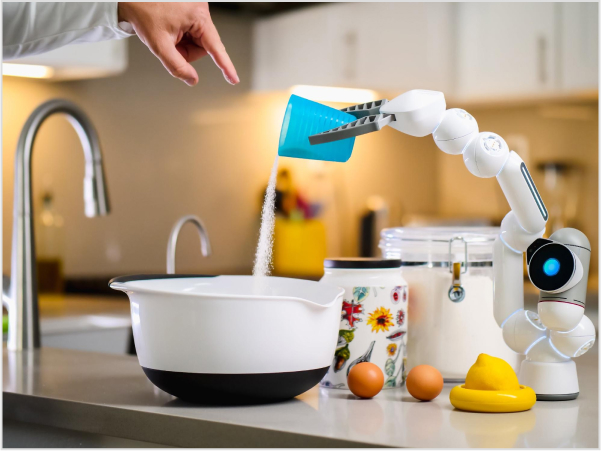
3. Grammarly
Grammarly is a popular AI-powered writing and editing tool that assists people and companies in improving their writing abilities, fixing typos and grammar, and producing clearer, higher-quality writing overall.
It is an American cloud-based typing assistant. It examines English manuscripts for spelling, grammar, punctuation, clarity, engagement, and delivery errors; it also looks for plagiarism and offers corrections for the errors found. Users can also alter their words, including style, tone, and context.
Founded In 2009
- Founded By: Rahul Roy Chawdhary (CEO), Max Lytvyn, Dmytro Lider, and Alex Shevchenko
- Example: Grammarly’s artificial intelligence algorithms scan text and recommend fixing grammatical and spelling errors. It also strengthens sentences and increases readability overall. Writers, learners, professionals, and companies utilize it to ensure their written communication is precise and efficient.

4. Cleerly
Cleerly is among the top healthcare AI startups that specialize in diagnosis and imaging for cardiovascular conditions. Cardiologists benefit from Cleerly’s AI technology, which increases the precision and efficacy of heart disease diagnosis.
Cleerly has created a software platform that enables whole-heart quantification and characterization of atherosclerosis in minutes rather than an hour. It is performed non-invasively to address this persistent and expanding issue. Because of this, Cleerly can measure heart illness directly, as opposed to using proxies or aftereffects of the condition.

AI-powered startup Cleerly raises $43 million to diagnose coronary artery disease.
- Founded: 2017
- Founded By: James K. Min, MD
- Example: Heart CT scans and other medical pictures can be analyzed by Cleerly’s AI-powered software to detect and measure coronary artery disease.
Healthcare providers can make more accurate and quick diagnoses because of the system’s comprehensive reports. This illustration shows how AI tech startups
are revolutionizing healthcare by enhancing patient care and diagnostic precision.

5. AlphaSense
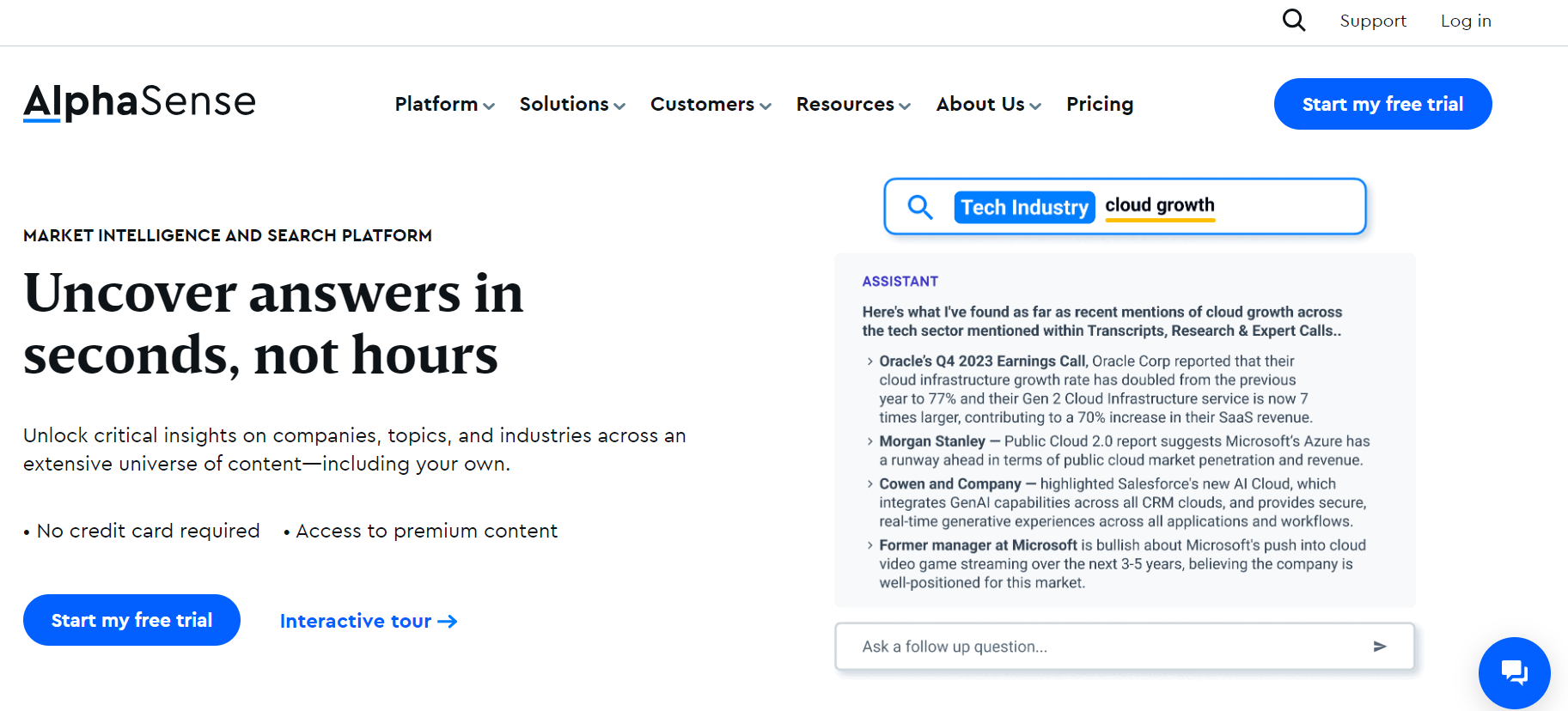
The real-time AI platform AlphaSense was explicitly created with financial experts in mind. With the help of AlphaSense’s AI algorithms, financial professionals can quickly and accurately access vital information by having them scan and analyze financial papers, news stories, and reports.
With this cutting-edge technology, research capabilities are greatly improved, enabling financial professionals to stay abreast of market trends, news, and changes and make more intelligent investment decisions.
- Founded: 2011
- Founded By: Csaba Hefler
- Example: The ability of AlphaSense to handle and analyze large datasets from SEC filings, earnings conference transcripts, and a variety of news sources is an excellent illustration of the company’s work.
In this way, it enables professionals to quickly gain crucial insights and make well-informed decisions in the fiercely competitive and dynamic world of finance.
6. Adept Ai

Adept is among the top AI startups. It is only a year old and employs 25 people. It has raised $350 million in venture capital after showcasing a basic version of a digital assistant.
Adept AI is a product and research lab for machine learning. The startup is utilizing innovative human-computer collaboration to construct artificial intelligence.
Read Up: The Great Debate: Will AI Replace Humans?
Adept AI aims to create a transformer that can handle every use case involving machine learning. Even though current models, like GPT-3, have remarkable reading and writing abilities, they still need to be able to act in the digital world or take the initiative to complete tasks.
- Founded: 2022
- Founded By: David Luan
- Example: Adept’s language models are designed to produce actions rather than text. Automating tasks makes knowledge workers in an organization far more productive and efficient.

7. Eightfold AI
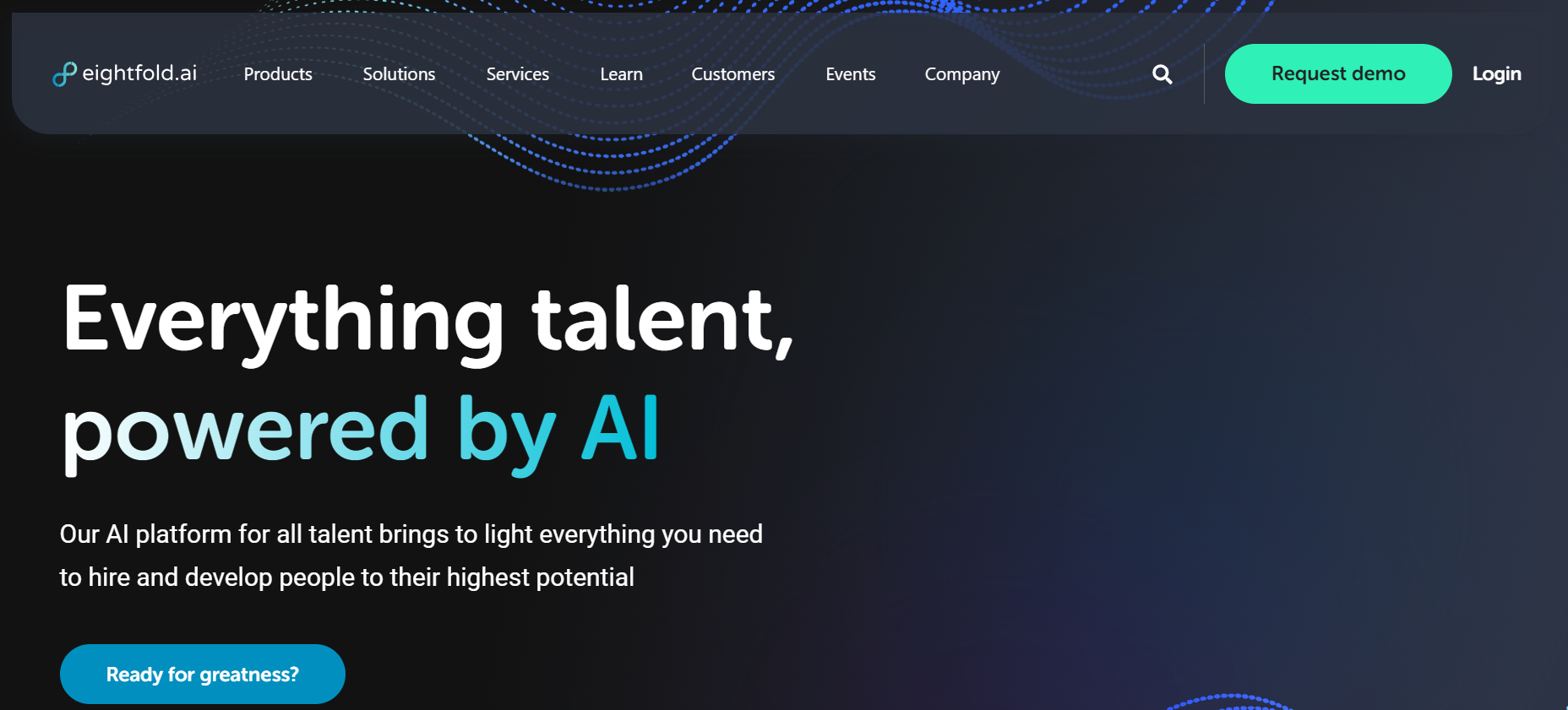
Eightfold AI is among the top AI startups using AI for talent management. Their platform helps employers find the best people for their requirements by using AI to match job seekers with matching job opportunities. Data on the platform was increasing by 20% every month.
The Talent Intelligence Platform from Eightfold simplifies the hiring process and enhances career transitions for companies and job seekers.
- Founded: 2016
- Founded By: Ashutosh Garg and Varun Kacholia
- Example: Eightfold’s Talent Intelligence Platform uses AI to assess job searchers’ qualifications, backgrounds, and preferences. After that, it connects individuals with employment openings that fit their background and aspirations. This shows how artificial intelligence (AI) may streamline the job search process and assist people in locating roles that align with their goals and skill sets.

8. Keenon Robotics
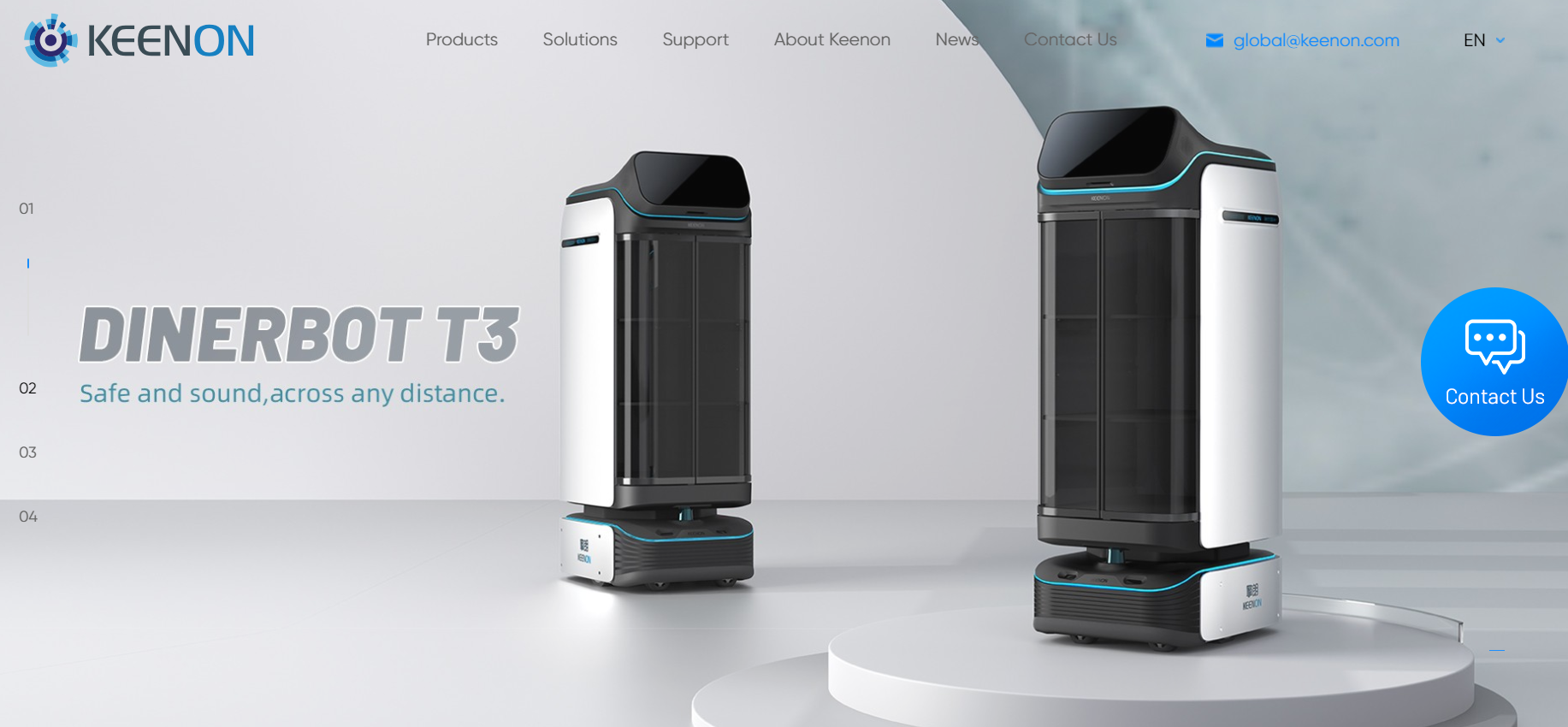
Keenon Robotics creates AI-powered robots for a range of uses, including self-cleaning floors and providing services to restaurants.
Although the startup’s foundation year and founders are not publicly disclosed, its work advances automation and robots in various industries. Globally, Keenon Robotics is the owner of 38 patents.
- Founded: 2010
- Founded by: Tony Li
- Example: Keenon Robotics’ AI-driven robots are used in the hotel and commercial cleaning sectors, among other industries. For instance, AI-enabled autonomous floor-cleaning robots can effectively clean large areas without human interaction, making them invaluable assets in industries where efficiency and cleanliness are critical.

9. Next Insurance
Next Insurance provides an AI-powered platform that streamlines and improves the insurance process. They give small businesses specialized insurance coverage so these companies can better safeguard their assets and operations.
Businesses such as Intuit provide their clients with commercial insurance by utilizing Next Insurance’s white-label service.
- Founded: 2016
- Founded By: Guy Goldstein
- Example: The company’s services include prompt claims investigation. Many cases result in decisions made in less than 48 hours, allowing clients to receive transparency. With the help of technology, they can provide exceptionally low costs by doing away with costly extras like agents. Various small enterprises, including general contractors and personal trainers, are also eligible for its plans.

10. Nuro

Nuro is one of the innovative AI firms on the list of AI startups. It is focused on creating solutions for self-driving car navigation.
Their artificial intelligence (AI) systems play a crucial role in developing the safe and effective self-driving cars of the future.
Nuro’s autonomous vehicles can accurately navigate metropolitan surroundings by utilizing complex algorithms and sensor technologies.
This technology is expected to contribute to a future where transportation is not only safer but also more accessible and sustainable.
Nuro raised $940 million in February 2019 from SoftBank Group, valuing the business at $2.7 billion.
- Founded: 2016
- Founded By: Jiajun Zhu and Dave Ferguson
- Example: Nuro’s work is exemplified by its self-driving cars, which are built to successfully navigate intricate metropolitan situations.
The application of AI by these cars to sense and react to their environment is a crucial step toward developing autonomous mobility. This illustration demonstrates how AI will fundamentally alter mobility and transportation.

11. Tempo
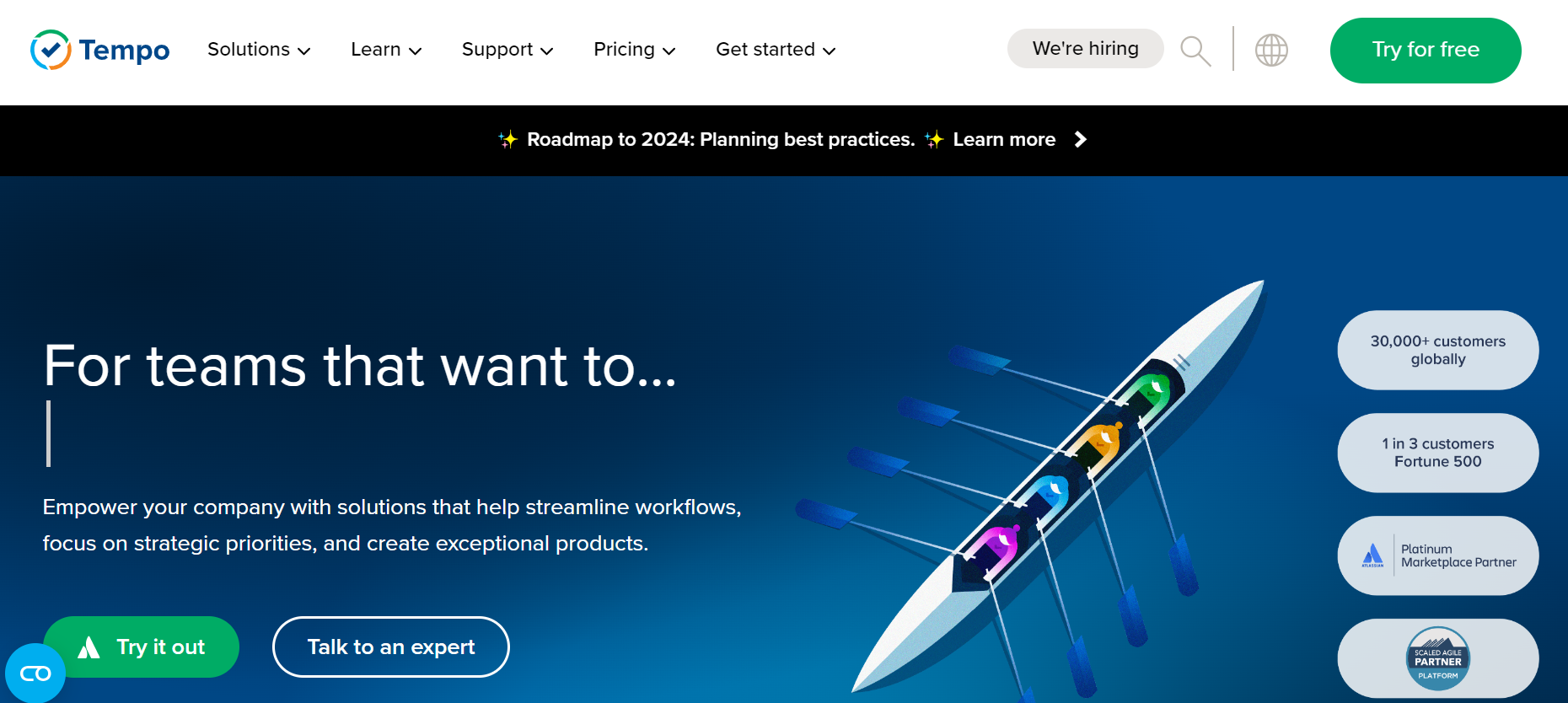
Tempo is a cutting-edge AI fitness business aiming to reinvent the exercise experience. Their artificial intelligence (AI)-driven training programs are designed to provide highly customized workouts that dynamically adjust to individuals’ fitness levels, preferences, and advancements.
Tempo monitors user data and performance to ensure that every workout is efficient, enjoyable, and, most importantly, to help people reach their fitness objectives. Combining AI technology and fitness creates a dynamic, customized fitness journey that makes wellness and health more pleasurable and accessible.
- Founded: 2015
- Founded By: Moawia Eldeeb
- Example: Tempo’s AI technology evaluates user performance in real-time and modifies workout regimens to increase efficacy. To guarantee a safe and effective workout, Tempo’s AI, for example, can recommend adjustments or different workouts if a user finds a specific activity difficult.
Additionally, Tempo provides users with real-time feedback on their form and performance while they follow along with an extensive library of professionally taught on-demand sessions.

12. Vise
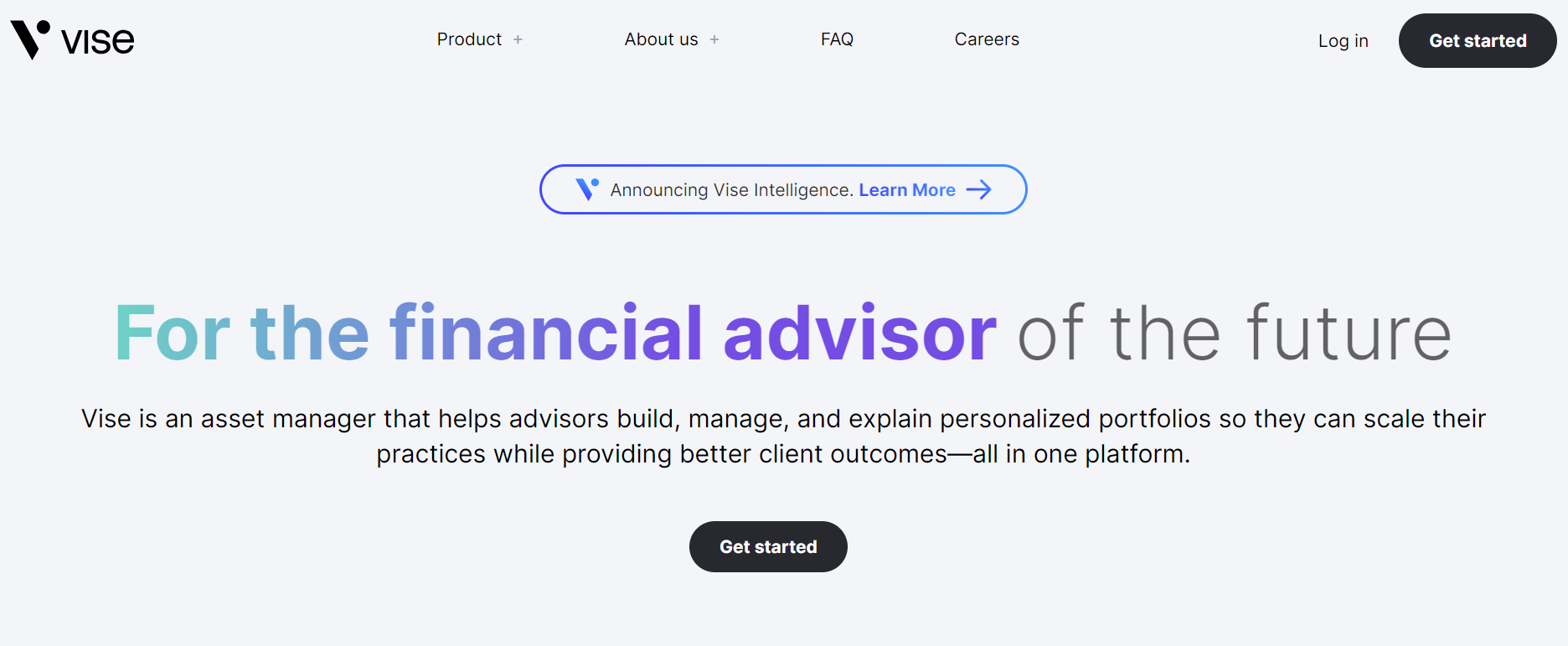
Vise is a live example of where artificial intelligence and human financial knowledge converge. Using AI-generated insights, the Vise platform enables financial advisors to create more individualized and well-informed investment plans for their customers.
Vise transforms the financial industry’s decision-making process using sophisticated AI algorithms and data analytics.
This ground-breaking method shows the disruptive potential of artificial intelligence in the financial sector while streamlining how investment advisors manage portfolios and assisting customers in achieving better financial outcomes.
Vise, an AI-based investment management platform, secures a $45 million Series B investment.
- Founded: 2016
- Founded By: Samir Vasavada and Runik Mehrotra
- Example: Vise’s AI platform constantly evaluates news reports, market data, and client-specific details to provide personalized investment recommendations. By optimizing their clients’ portfolios and assisting them in reaching their financial objectives, investment advisers employ this technology to give their clients well-researched, data-backed investment recommendations.

13. Plenty

Plenty is an agricultural AI startup dedicated to efficient and sustainable produce growing. It has transformed the agricultural scene by fusing AI with vertical farming to create a system that maximizes fresh product growth in a highly efficient and sustainable way.
AI is crucial in controlling important factors like lighting, climate regulation, and fertilizer distribution, eventually leading to high-yield, ecologically friendly agriculture that meets the rising demand for sustainably produced and locally sourced food.
- Founded: 2014
- Founded by: Jack Oslan, Matt Bernard, Nate Mazonson, and Nate Storey.
- Example: In indoor farms, AI regulates water, airflow, and humidity. In January, Plenty, a business engaged in vertical farming and selling lettuce, raised $400 million. Its rival, Gotham Greens, raised $310 million in September.

14. People Ai
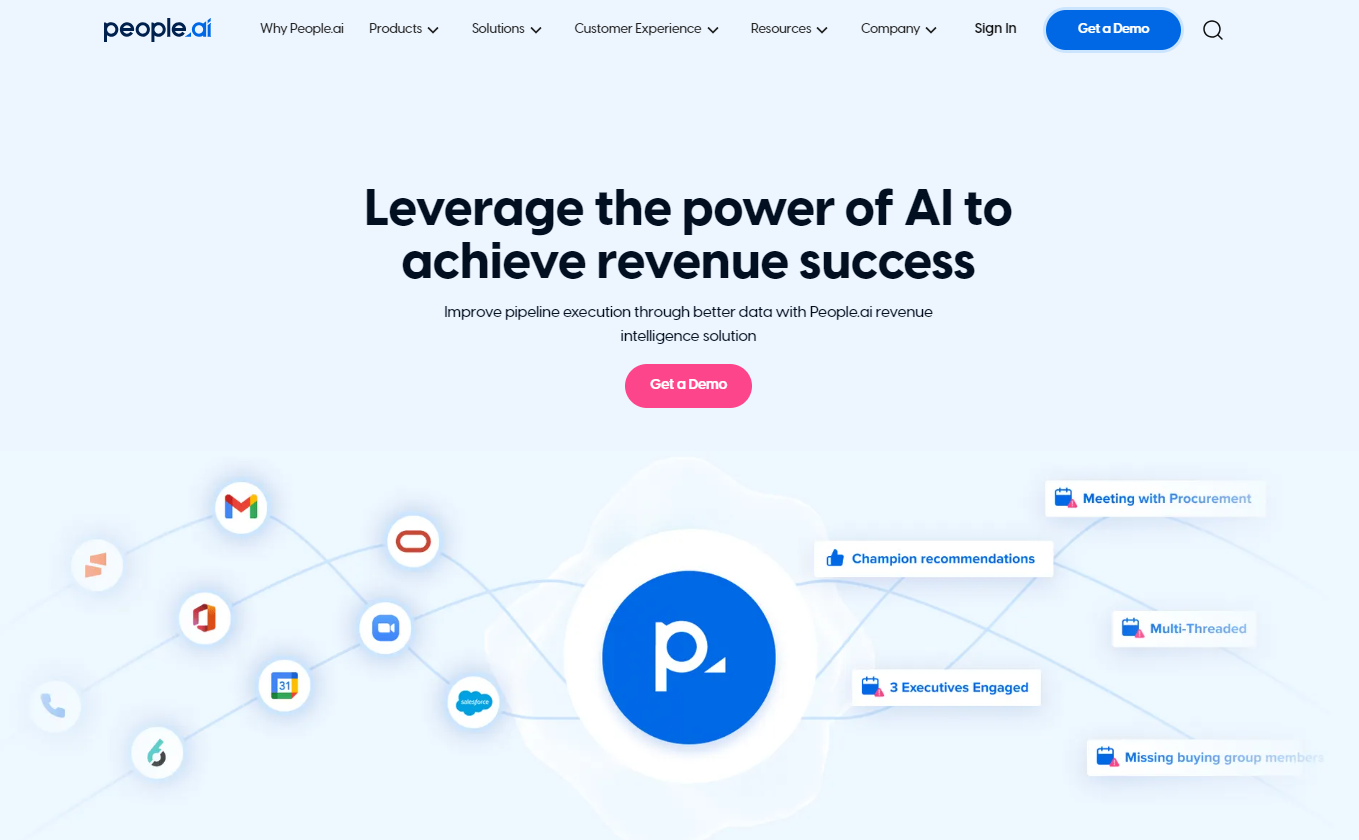
People.ai is among the groundbreaking AI startups committed to improving marketing and sales procedures. Their platform is helpful for firms looking to enhance their customer engagement and sales strategies.
It uses artificial intelligence (AI) to analyze client interactions and extract valuable data. People.AI helps sales and marketing teams maximize their plans by automating data collection and analysis. This eventually leads to more revenue and improved customer relations.
Also Read: AI-Powered Video Marketing: A Complete Guide
- Founded: 2016
- Founded By: Oleg Rogynskyy
- Example: The platform of People.ai keeps track of and evaluates consumer interactions across a range of touchpoints, including email conversations, sales calls, and marketing efforts.
It can assist companies in creating more prosperous and customer-focused sales and marketing operations by, for example, determining the most efficient outreach tactics, monitoring customer engagement, and offering practical advice on increasing lead conversion rates.

15. Atomic AI

AI in content marketing? Yep.
Atomic AI runs a content intelligence platform that uses artificial intelligence (AI) to make it easier to generate new compounds and medications quickly. The business gathers and evaluates engagement data from client analytics platforms using its in-house platform, producing forecasts on subjects, release schedules, and media outlets.
It offers AI-powered content optimization solutions. Their platform makes it possible for content producers to evaluate and enhance their work to more successfully reach their intended audience, improving the caliber and effectiveness of content marketing.
- Founded: 2020
- Founded By: Raphael Townshend
- Example: By developing novel approaches to target RNA structure and treat previously incurable diseases, Atomic AI is striving to transform medicine distinctively.

16. Shield AI

Shield AI focuses on creating autonomous systems for security and defense applications. Autonomous drones from Shield AI, like “Hivemind,” are employed for surveillance and reconnaissance, which enhances military and security operations.
Shield Ai has 6 patents, of which four have been granted.
- Founded: 2015
- Founded By: Brandon Tseng
- Example: Shield AI’s “Hivemind” autonomous drones are made to operate in demanding situations, such as combat zones. These drones use AI for autonomous navigation, which allows them to carry out safe and highly accurate reconnaissance and surveillance missions. This illustration shows how AI may improve defense and security operations.

17. Capacity
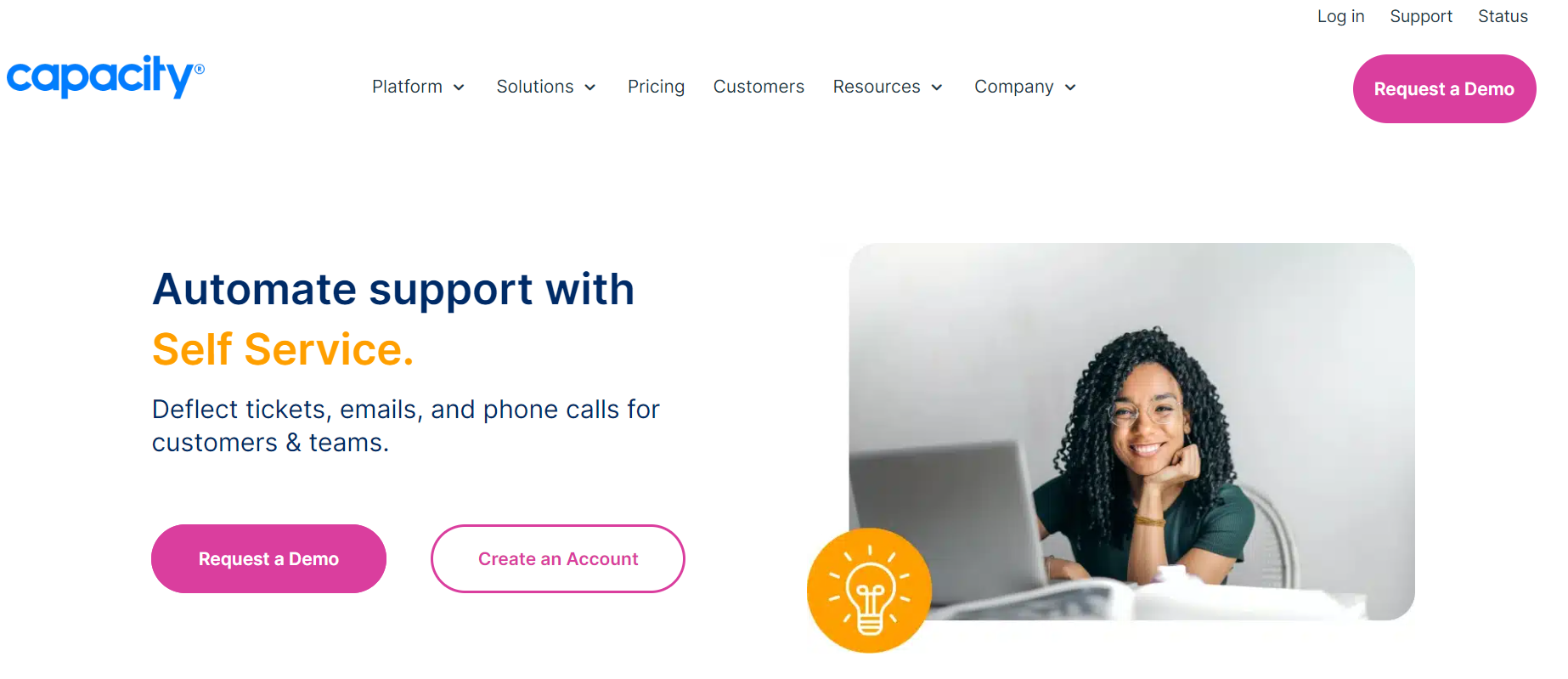
Capacity shines in the world of AI startups. It is an AI-powered business that provides a platform for knowledge sharing.
By eliminating information silos and promoting smooth knowledge transfer among businesses, their AI solution enables firms to efficiently gather, arrange, and distribute institutional knowledge.
Using Capacity’s artificial intelligence (AI) platform generates a dynamic, searchable knowledge base that improves teamwork and productivity. About 1900 people prefer to go for capacity.
- Founded: 2017
- Founded By: David Karandish and Chris Sims
- Example: Capacity’s knowledge-sharing platform serves as a concrete illustration of their efforts. Users can use the knowledge base to search for and retrieve information, which is updated and expanded as new information becomes available.
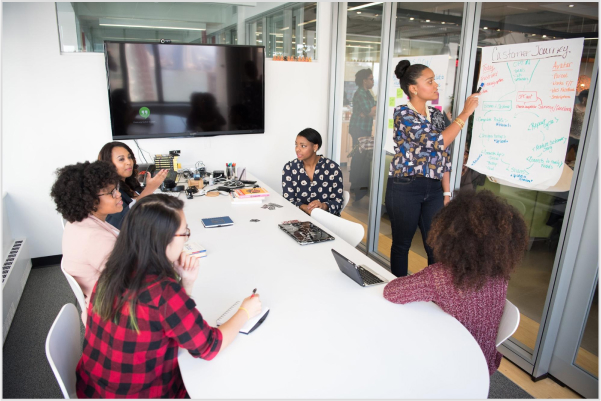
18. Case Text
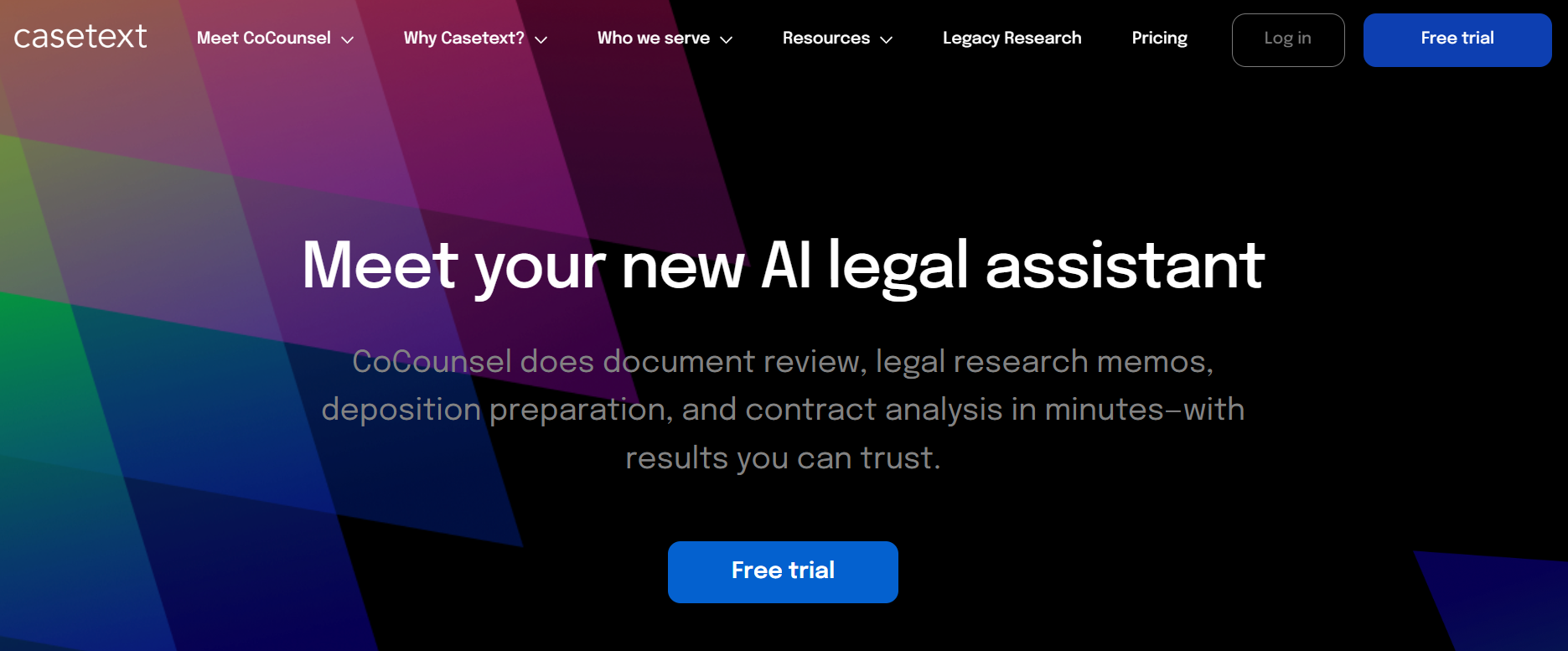
CaseText is a legal tech company that enhances legal research through AI.
By assisting legal practitioners in swiftly and accurately locating pertinent cases, legislation, and legal documents, its CARA AI technology streamlines the time-consuming and labor-intensive process of legal research.
Legal practitioners are guaranteed access to the most current and pertinent information thanks to CaseText’s automation of legal research, which greatly increases job efficiency.
- Founded: 2013
- Founded By: Andrew Lee, Jake Heller, Laura Safdie, and Pablo Arredondo
- Example: CaseText’s work is demonstrated in a useful way on the CARA AI platform. Professionals in the legal field can enter a legal query, and the AI system will quickly search through an extensive collection of legal documents and present pertinent cases and legal interpretations.

19. Abnormal Security
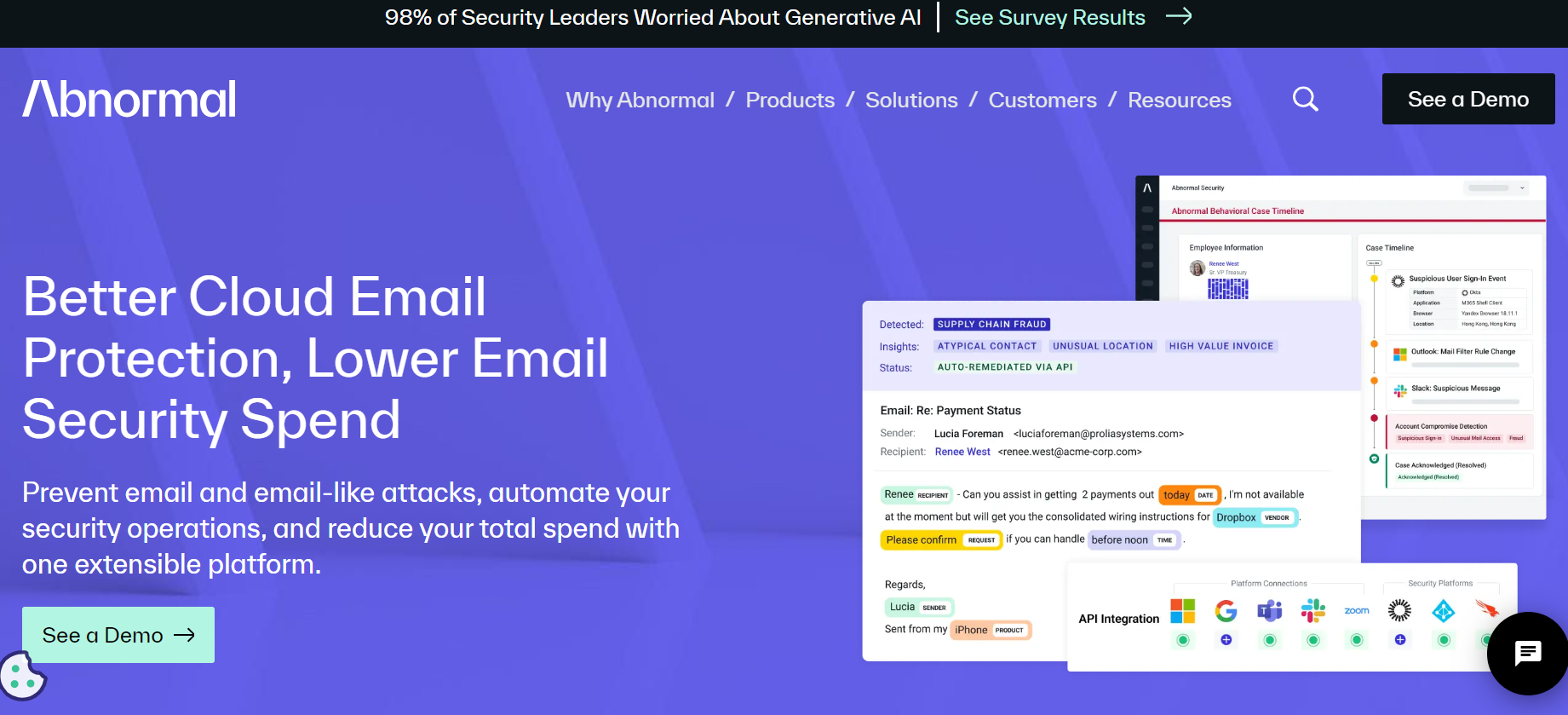
Abnormal Security is one of the most outstanding AI startups. Its cybersecurity business focuses on email security using artificial intelligence.
Their artificial intelligence (AI) algorithms are made to recognize and prevent sophisticated email attacks, like spear-phishing and phishing attempts, shielding businesses from online dangers and guaranteeing the confidentiality of their correspondence.
According to a new survey from Abnormal Security, 98% of security leaders worry about the risks associated with generative AI.
- Founded: 2018
- Founded By: Evan Reiser
- Example: Abnormal Security’s AI-driven email security system is a practical illustration of their work. The system can identify subliminal indicators of phishing or harmful email content and prevent users’ inboxes from receiving such emails. This example demonstrates the importance of AI in shielding enterprises from changing cybersecurity threats.

20. Diligent Robotics
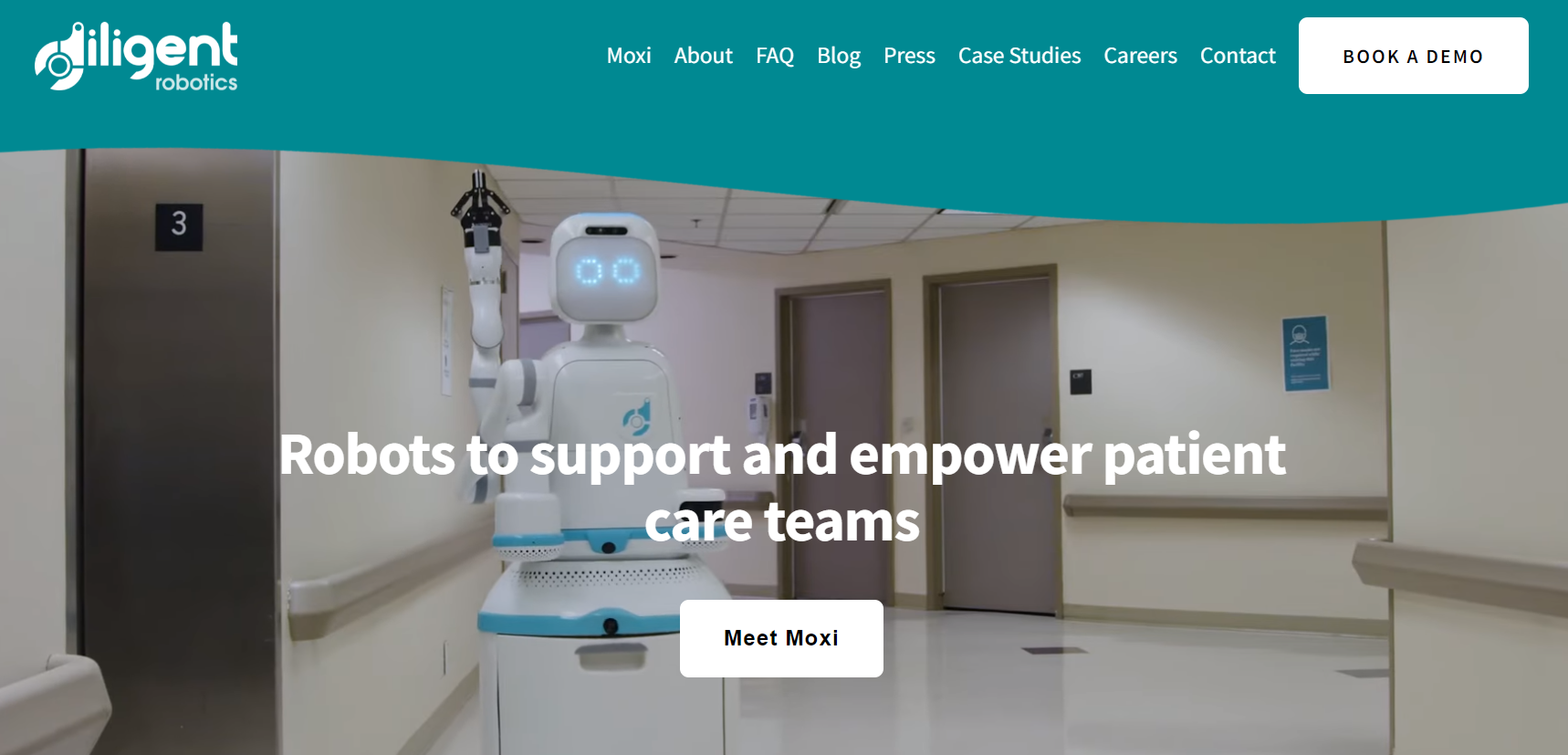
Diligent Robotics focuses on robotics for healthcare environments that AI drives. By helping with activities like supply delivery and support, these robots help medical workers improve patient care.
It is used by more than 22 health systems, comprising more than 200 hospitals nationwide.
- Founded: 2017
- Founded By: Andrea Thomaz
- Example: AI-powered robots from Diligent Robotics can carry out activities and transport supplies at healthcare facilities on their own, freeing up healthcare personnel to concentrate more on patient care and minimizing workload.

This illustration shows how artificial intelligence (AI) might boost productivity and assist in medical environments. One question often arises: how can I start an AI startup?
Before going for your AI startup, one must consider the following points:
- Identify a specific problem or niche.
- Assemble a skilled AI team.
- Collect high-quality data.
- Develop AI models.
- Secure funding.
- Build a prototype.
- Test and refine.
- Ensure regulatory compliance.
- Implement a marketing and sales strategy.
Conclusion
These 20 AI startups represent the cutting edge of innovation and the enormous revolutionary potential that artificial intelligence possesses in the constantly changing field of technology.
AI startups make it easier to obtain important information quickly and precisely, improve the sustainability of agriculture, advance the healthcare industry, expedite legal research, and improve organizational knowledge management. These AI startups are enhancing lives rather than merely disrupting industries.
FAQs
AI startups set themselves apart using machine learning and artificial intelligence to tackle particular issues or upend established markets. They frequently place a significant focus on disruptive business models and innovation.
AI startups usually obtain funding from a variety of sources, such as grants from the government, corporate collaborations, venture capital, and angel investors. By showcasing AI’s capacity to solve pressing issues and yield significant returns on investment, they draw in investors.
AI startups face difficulties in hiring experts, acquiring data, and adhering to regulations. It is crucial to have access to high-quality data and knowledgeable AI specialists. Furthermore, navigating the constantly changing field of AI ethics and laws can be challenging.
Numerous industries, including healthcare, banking, agriculture, manufacturing, and transportation, might be significantly impacted by AI businesses. These upstarts are developing cutting-edge solutions that boost productivity, cut expenses, and sharpen judgment across various industries.
